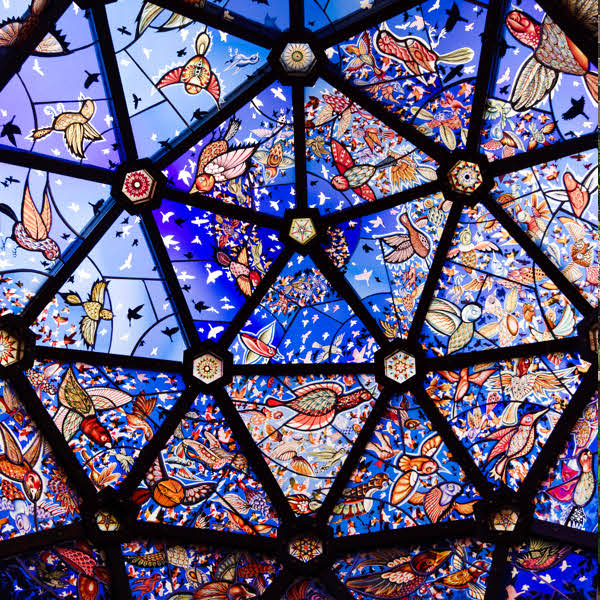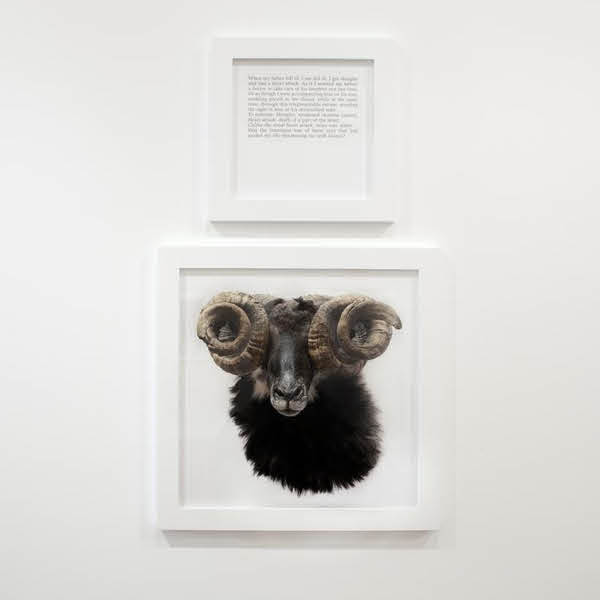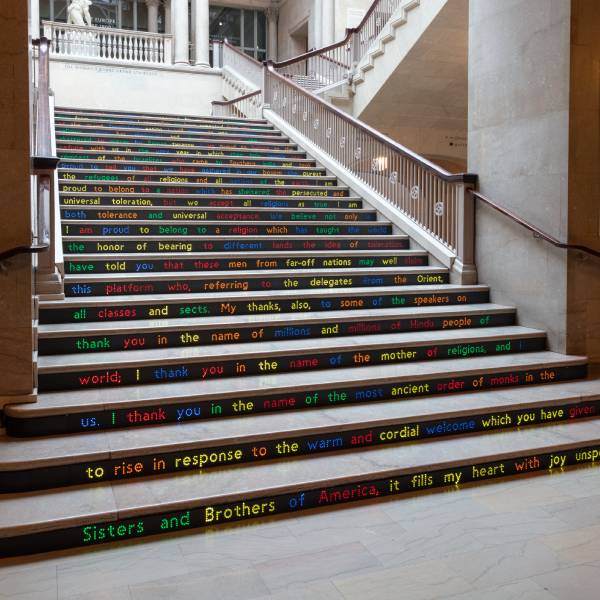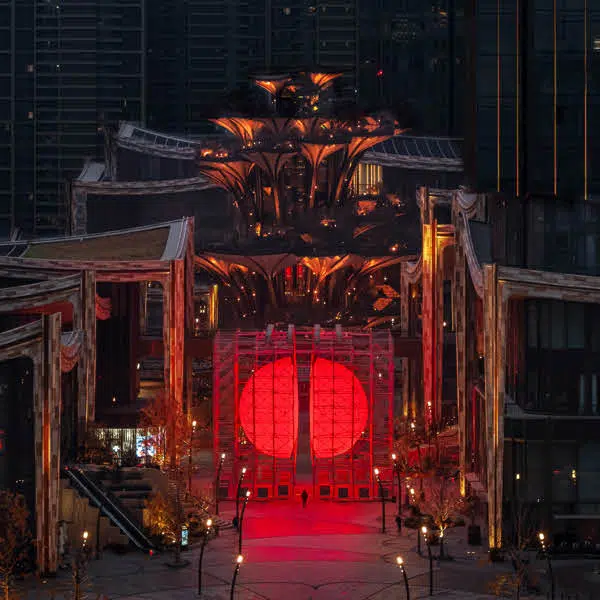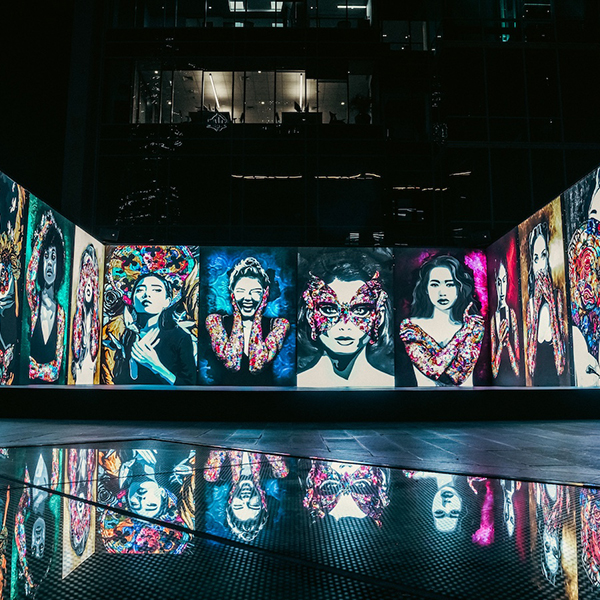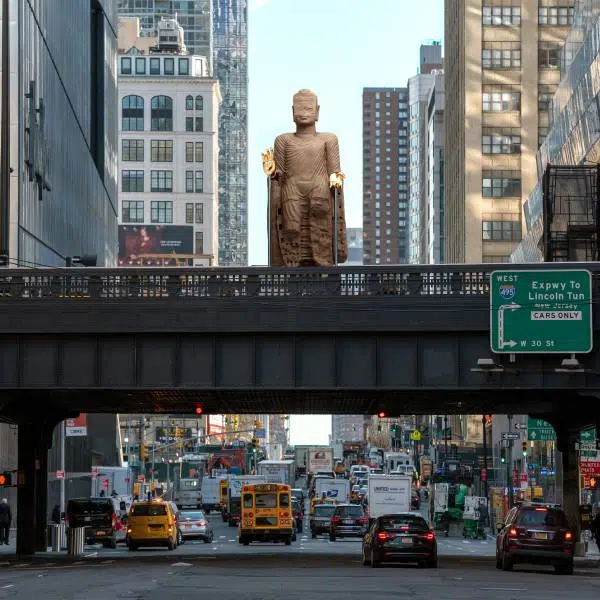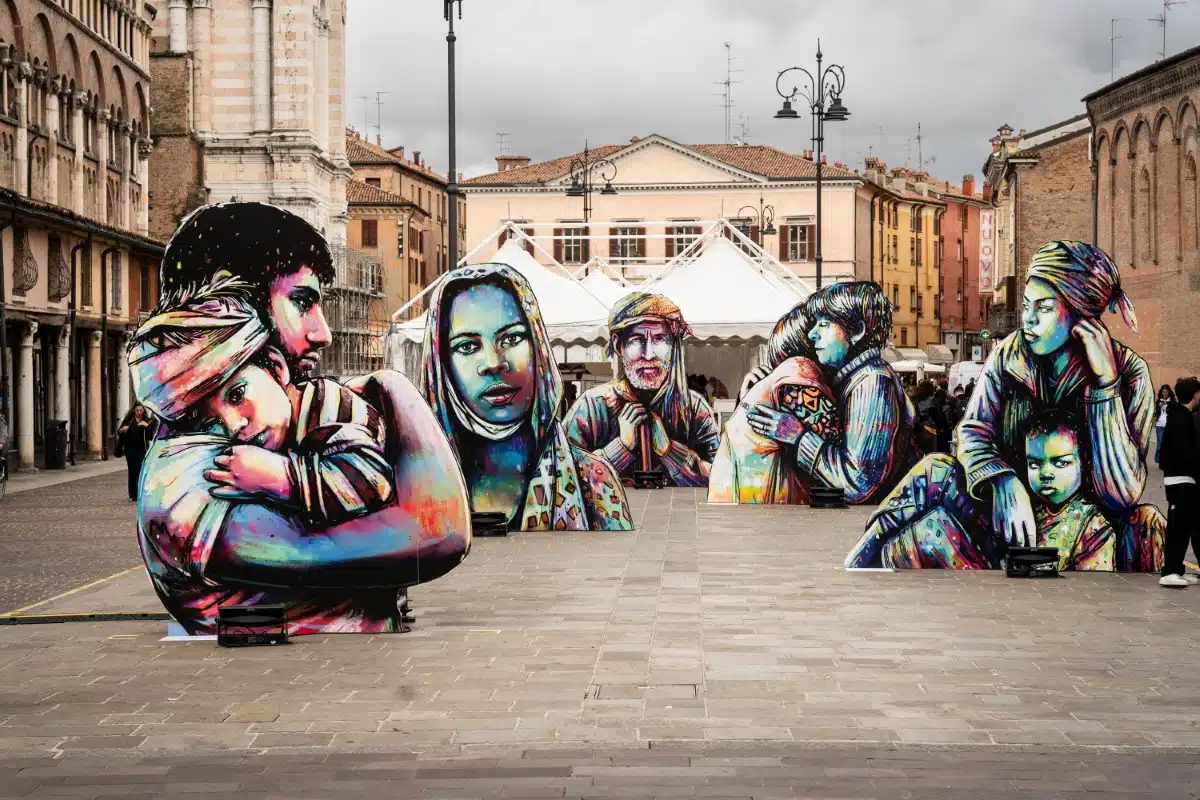
Artist Alice Pasquini is known for her colorful, uplifting street art, but recently, she lent her talents to shed light on the plight of those living in conflict zones. Her installation, Not a Target, tells the stories of civilians and medical professionals affected by five different wars, from Ukraine to Sudan. Organized in collaboration with Doctors Without Borders (Médecins Sans Frontières) and the Italian magazine Internazionale, her large-scale portraits were erected in Ferrara, Italy, for all to see.
Pasquini's imagery is rooted in stories shared by the staff of Doctors Without Borders. The non-governmental organization provides humanitarian medical care around the world, working in over 75 countries to save lives and ease suffering in high-risk areas. Moved by the stories of bravery and resilience, Pasquini translated them into six large-scale vignettes.
“I wanted to visually capture the strength, vulnerability, and humanity that persist even in the darkest times,” she tells My Modern Met. “The goal was to create visuals that communicate not just the suffering but also the hope and the unwavering will to survive. It’s about showing the human side of conflict beyond numbers and headlines.”
Her moving portraits draw in the public, allowing them to see themselves in these scenes, whether that be the small child crying on his father's shoulder or the defiant gaze of a woman in pain. By using her art in this way, Pasquini hopes to give voice to the voiceless and to contribute to a greater dialogue about the world we live in.
“When art can move people to care, to think differently, or to take action, it becomes more than just an aesthetic—it becomes a way to make a real impact.”
Not a Target asks us to look beyond the headlines and reminds us that behind the statistics and news reports, there are real people—men, women, and children simply trying to live their lives while caught in a war.
“This installation is a call for empathy, for recognizing our shared humanity, and for supporting the protection of civilians and humanitarian efforts,” shares Pasquini. “I hope it inspires people to reflect on their own role in advocating for human rights and standing up for those affected by conflict.”
In collaboration with Doctors Without Borders, artist Alice Pasquini created a moving public installation in Italy.
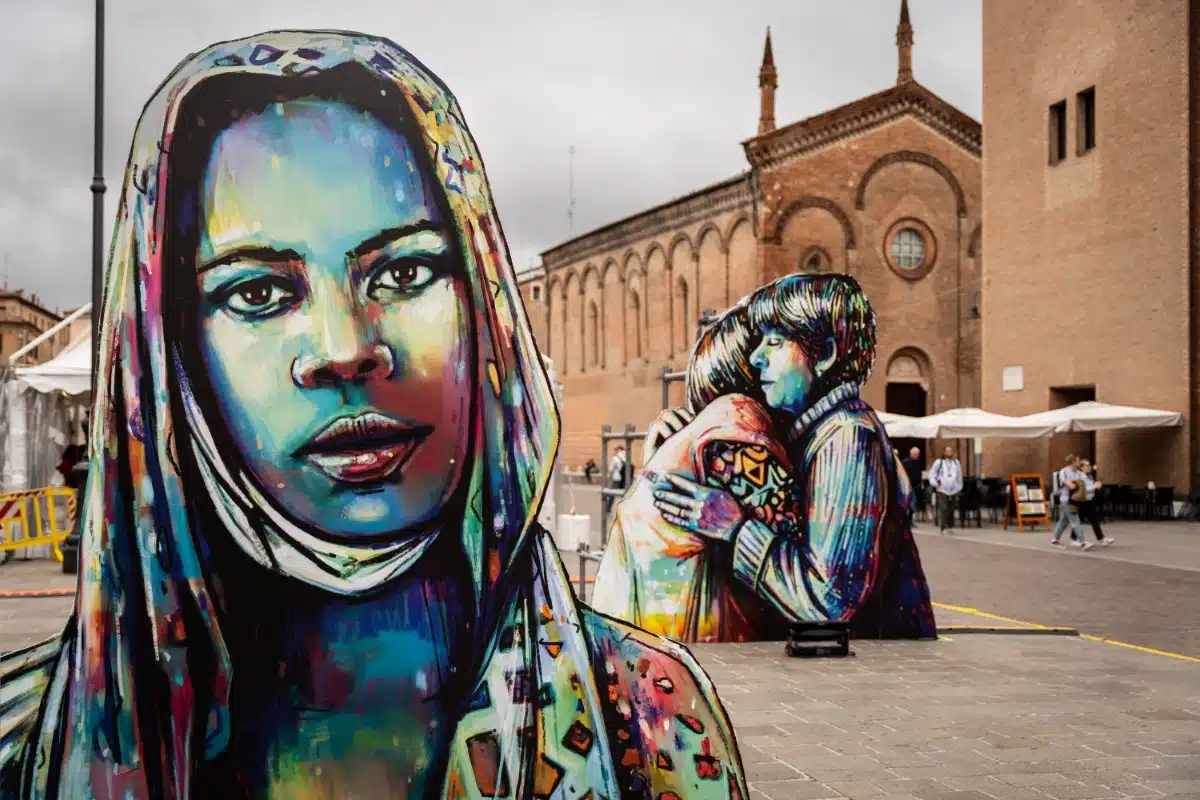
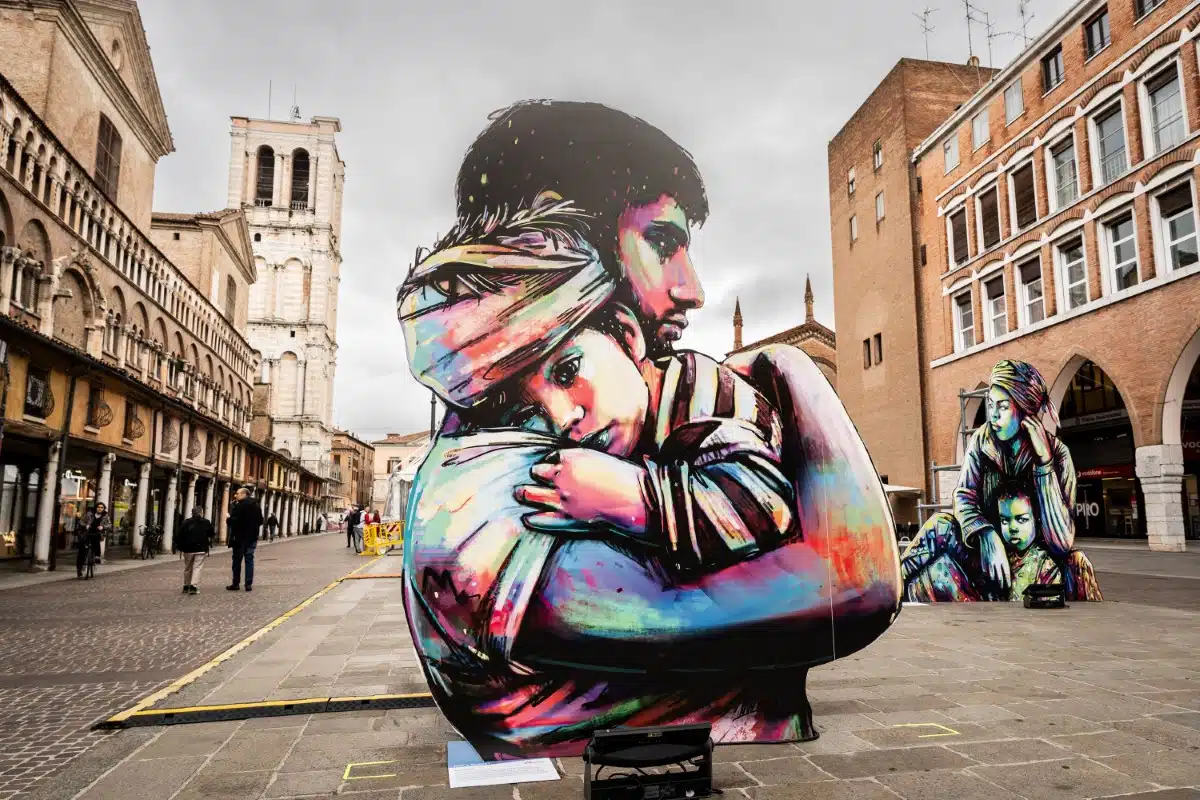
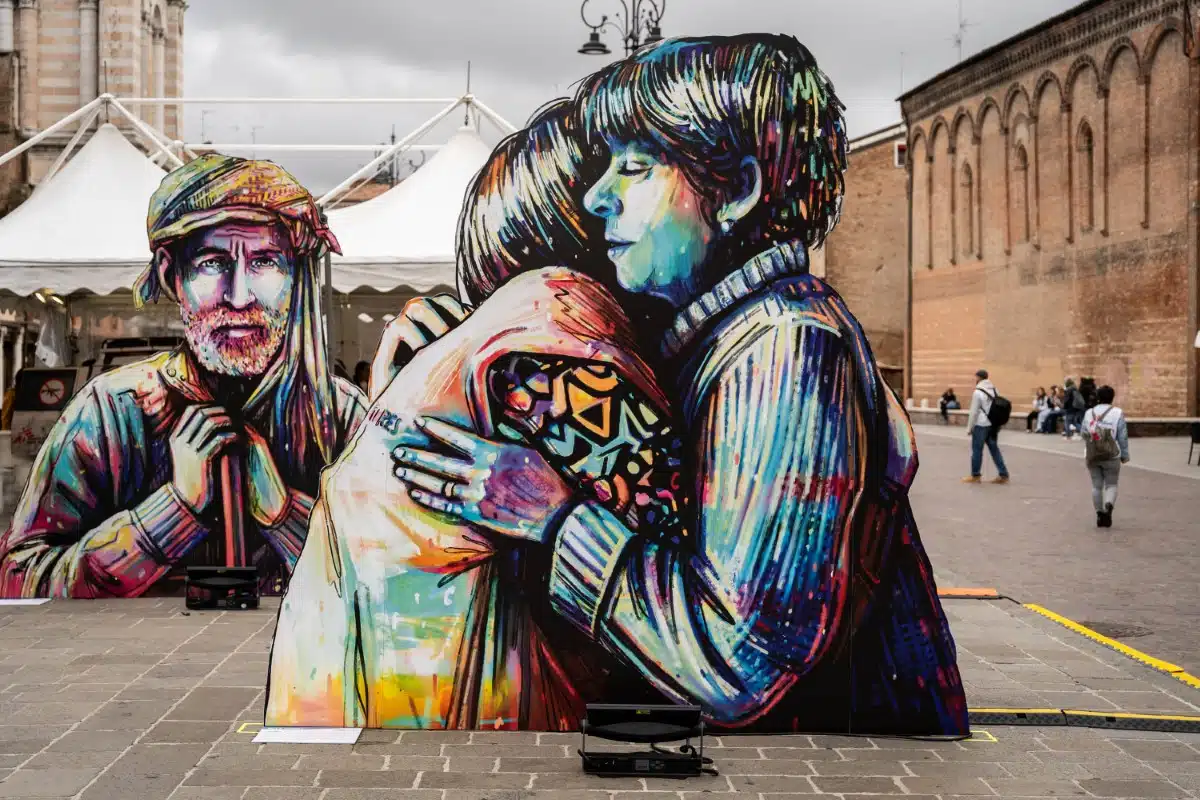
Not a Target tells the stories of civilians and medical professionals affected by five wars, from Ukraine to Sudan.
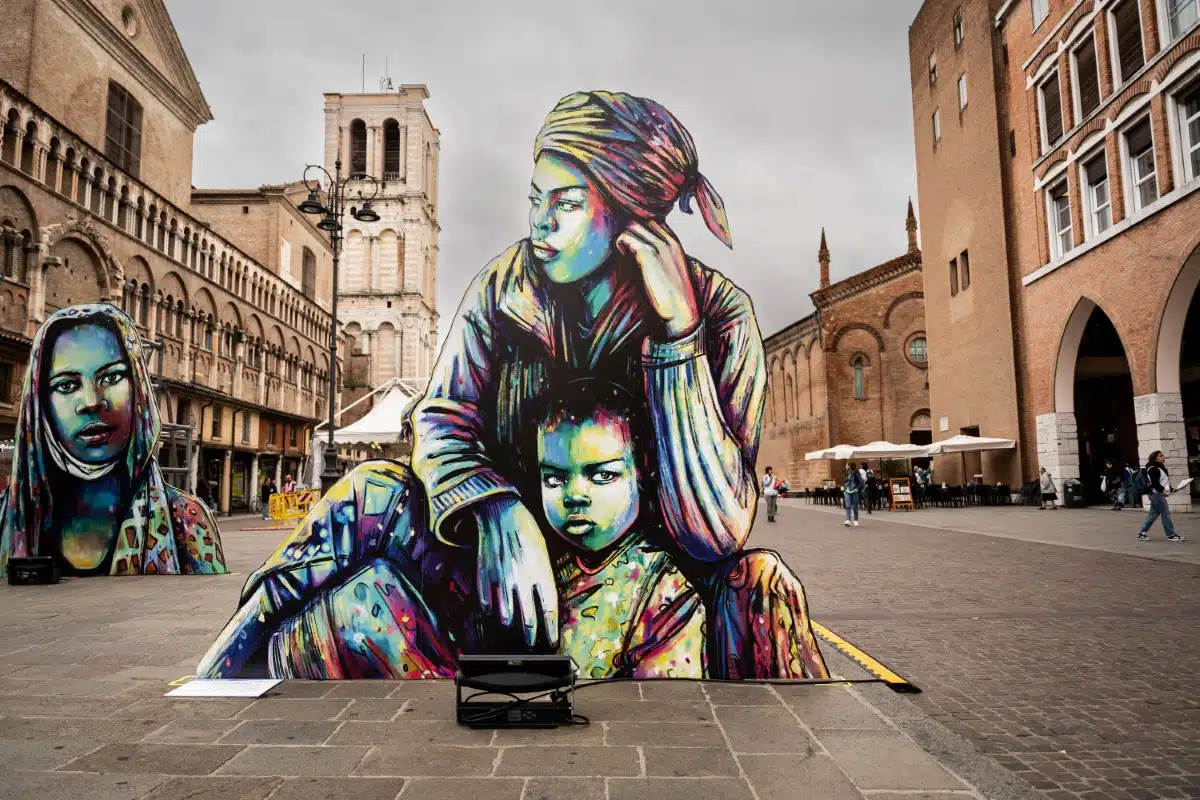
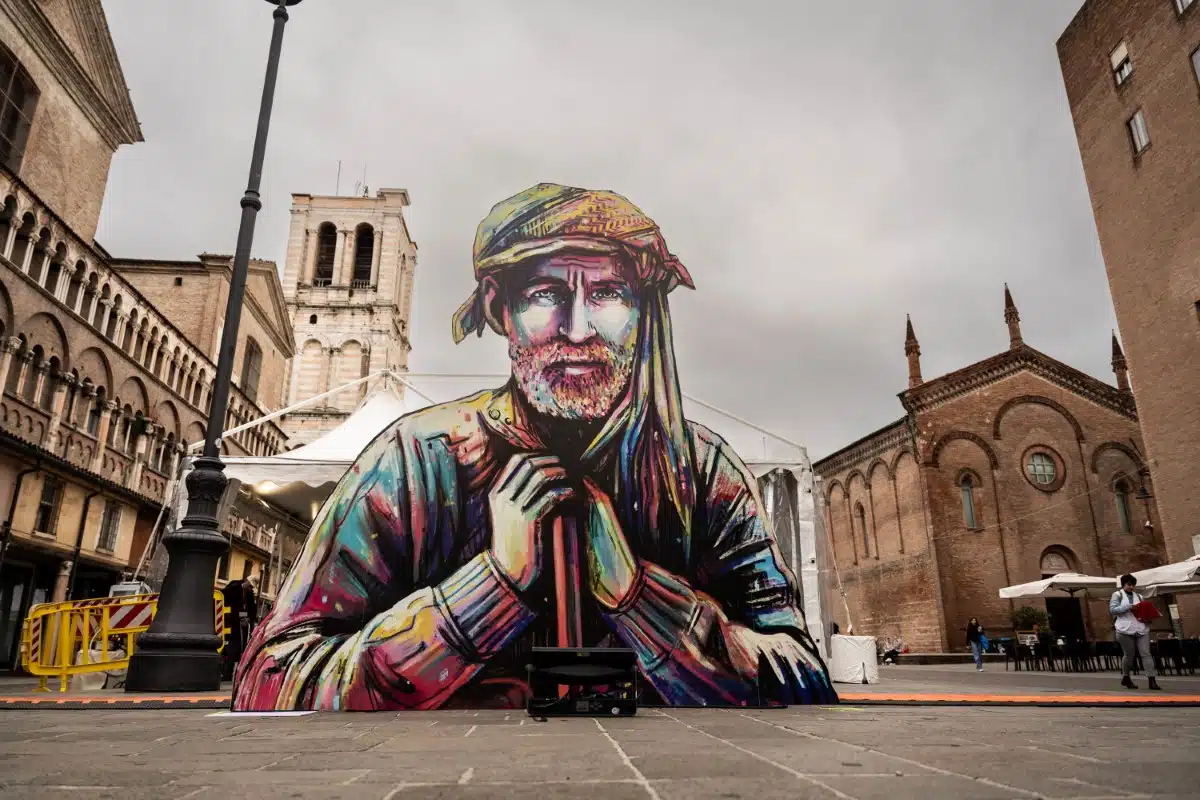
“This installation is a call for empathy, for recognizing our shared humanity, and for supporting the protection of civilians and humanitarian efforts.”
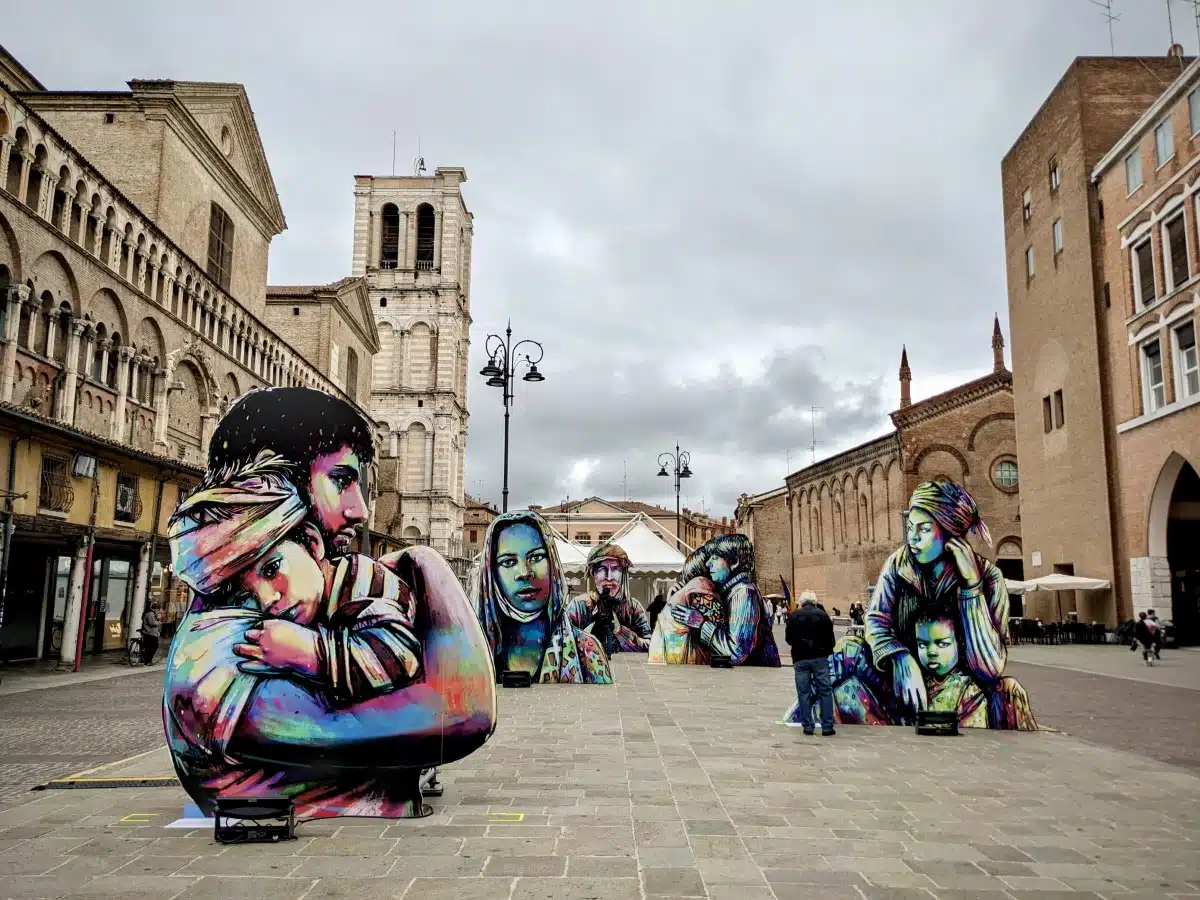
Photo: Alice Pasquini












































































